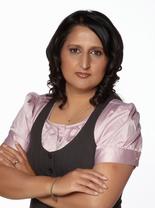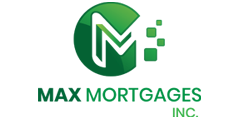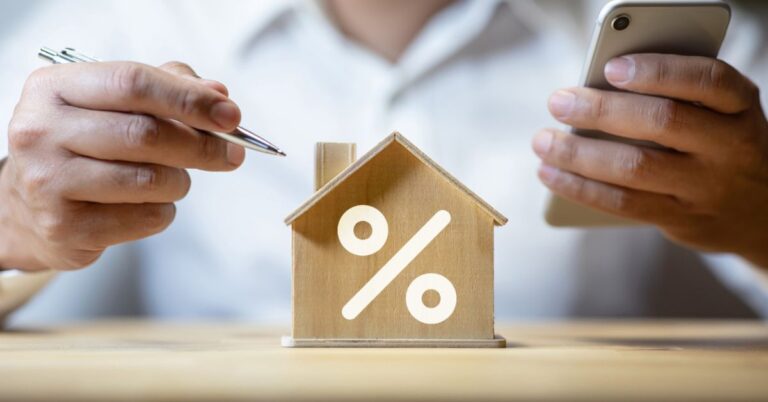A mortgage helps you cover a property/house by means of a loan from a financial institution or bank. Although qualifying for a mortgage might seem difficult, you can simplify it with the proper actions. In straightforward language and instances, this guide spells everything out.
Understand Your Credit Score
When you seek a mortgage, your credit rating is quite vital. It reflects your debt and finance management. Credit scores run from 300 to 900 in Canada. A better score implies more trust of you from lenders. You can consider any score which is higher than 660, a good credit score.
For instance:
If your score is 750 then it shows that you pay your bills on time and lenders will trust you more.
Tips to enhance your credit score
A good credit score can help you get a mortgage and at lower interest rates which saves you money in the long run.
- Pay all your bills on time like credit card, loan EMIs, etc.
- Always try to keep your credit card balance low.
- Do not apply for too many loans or credit cards.
- Check your credit report for mistakes and fix them, periodically.
Save for a Down Payment
The down payment is the money that you pay upfront when you buy a property. In Canada, the minimum down payment depends on the price of the property. Let’s say:
- If your property costs $500,000 or less: You need to pay at least 5% of the price.
- If your property costs more than $500,000: You need to pay 5% for the first $500,000 and 10% for the amount over $500,000.
Example:
For a $700,000 property:
5% of $500,000 = $25,000
10% of $200,000 = $20,000
Total down payment = $45,000
Down Payment Saving Tips
A larger down payment reduces your monthly payments since you will require a lesser loan.
- Control and budget your spendings every month and put some in savings.
- Stop wasting money on items not crucial, such as dining out.
- Use tools like the First-Time Home Buyer Incentive.
- Save money either in a Tax-Free Savings Account (TFSA) or a Registered Retirement Savings Plan (RRSP).
Cut down on your debt
Lenders look at your debt-to-income ratio (DTI). This is your earnings contrasted against your outstanding liabilities. A lower DTI is better.
For instance:
If your total debt including car loans or credit cards is $1,500 and $5,000 is your monthly income so your DTI will be $1,500 divided by $5,000 which is 30%.
Suggestions for Reducing Your Debt
Debts that are lower tells lenders that you can manage a mortgage.
- First, settle all your little credits.
- Before you apply for a mortgage, do not use for fresh loans.
- Use extra money like tax refunds or bonuses to clear off your debts.
- Get a single, lower interest rate loan to consolidate all of your debts.
Pre-approve yourself for a Home Loan
In this process, a lender upon pre-approval agrees to a particular loan depending on your credit score and income which helps you understand your finances.
What you need for Pre-Approval
Pre-approval also buys you an interest rate but for a few months, meanwhile you can still secure rates while you search for a property.
- Your vidence of earnings (tax returns, pay stubs).
- Bank statements that confirm your savings.
- Your present outstanding obligations.
Example:
If the lender pre-approves you for $400,000 that means now you can look for properties within that budget. Also, pre-approved locks in an interest rate for sometime so if the rates go up while you look for a property, you are still safe.
Maintain your employment
The lenders will always ask you for proof of your stable income which is basically two years of work experience. This way lenders can feel sure that you can cover your mortgage with a stable income or employment.
Guidelines for Maintaining Employment
- Before you apply for a mortgage, don’t think about changing your job.
- Keep the major records of your spending and income if you work for yourself.
- Indicate that you have been employed in the same sector or line for quite some time.
Save for Other Expenses
The property purchase doesn’t end at the down payment and mortgage. There are additional costs as well, such as:
Closing Costs: Lawyer’s fees, taxes, and inspections which can range between 1.5% and 4% of the property.
For example:
In a $500,000 property, the closing costs can range between $7,500 and $20,000.
Monthly Costs: Property taxes, home insurance, and repairs.
Emergency Fund: Save to cover three months of mortgage payments.
Note- Planning for these costs will enable you to be prepared for any shocks!
Choose the Right Mortgage
Canada has two popular types of mortgages:
- Fixed-Rate Mortgage: The interest rate does not change at all till the life of your mortgage.
- Variable-Rate Mortgage: The interest rate may increase or decrease, when? No one knows exactly!
Example:
For a mortgage of $300,000, with a fixed rate of 5%, the monthly payment would be approximately $1,745.
With a variable rate of 4.5%, your initial monthly payment will be $1,667; however, that may change
Tips:
- A fixed rate brings stability which means no tension of interest rates going up/down.
- A variable rate may save money if the interest rates go down.
- Talk to your mortgage advisor for the best rates for you.
Avoid Big Purchases Before Applying
Big purchases like a car or furniture, add to your debt. This can lower your chances of getting a mortgage.
Example:
Suppose you purchase a $20,000 car on finance and your monthly installments are at $400. This pushes your DTI, and the lower the amount that you can get for your home or property. Once your mortgage application has been accepted, you can make big purchases.
Seek Professional Assistance
Mortgage brokers as well as financial advisors in your area may be able to assist you in the process.
Why should you choose a Mortgage Broker?
You should choose a mortgage broker because:
- They help you in finding the most suitable loan products for you.
- They assist you with paperwork and the process.
Why should you take guidance from a Financial Advisor?
Reasons to take guidance from a Financial Advisor:
- They assist you in making a savings plan.
- They advise on how to manage money during the process of buying your home.
Utilize Programs for First-Time Buyers
Canada has programs for the first-time buyer of homes:
- Home Buyers’ Plan (HBP): You can withdraw up to $35,000 tax-free from your RRSP to buy a home.
- First-Time Home Buyer Incentive: Get assistance that helps you pay less in mortgage payments.
- GST/HST New Housing Rebate: Recover some of the taxes paid on a new or renovated home.
Final Thoughts
You can get a mortgage in Canada with the right planning and good money habits. The first step towards getting a loan would be to check your credit score, put some savings in for the down payment, and bring down your debt. Get pre-approved, then ask for expert advice. Use helpful programs for first-time buyers and you are all set!

Leena Sohal, a Principal Broker, brings over 20 years of mortgage industry experience to her role as a licensed mortgage broker for the past 15 years. Starting her career with industry giants TD and CIBC, Leena established a foundation based on integrity and professionalism. As the driving force behind Max Mortgages, she is dedicated to simplifying the mortgage process for clients, offering personalized service in the ever-changing housing market.
Under her leadership, Max Mortgages, a local independent business in the Greater Toronto Area, has earned commendations for exceptional customer service, embodying a commitment to genuine assistance and lasting client relationships.
FSRA Lic. # M09000197




